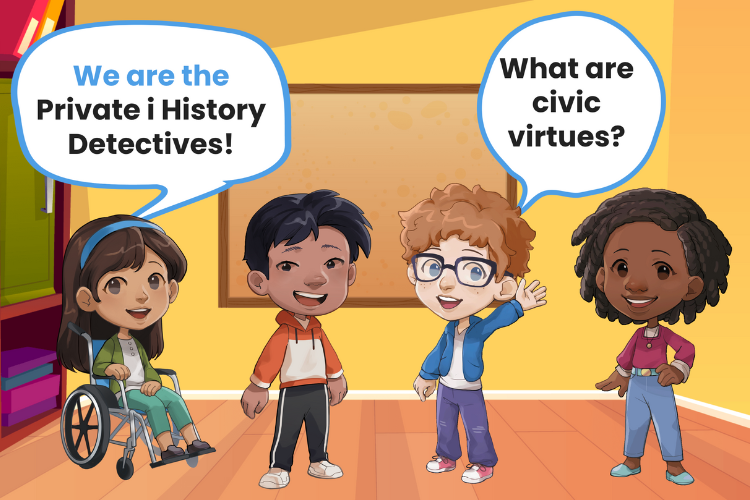With information at our fingertips like never before, the sharing of misinformation happens faster than you think. In fact, by the time you see that post or check the credibility of the information, it has been shared hundreds of times, has thousands of likes, and everyone already has an opinion.
As educators, we know to question the credibility of what we see and share online; we’ve learned and honed those skills and put them into practice constantly. But most students don’t have those skills yet, or they haven’t practiced those skills enough for them to become second nature. And because our students have grown up in the digital era, the speed at which they receive and share information is often more important than the credibility of the information itself.
The problem isn’t just misinformation or disinformation. In reality, we are missing something very important: students’ curiosity and desire to know.
Educators have a unique opportunity to foster that curiosity and critical thinking in ways that help students develop a positive and ethical relationship with media and information. Imagine a future where the desire to have credible information sparks a change in the information that is shared. Imagine a future where misinformation isn’t leading the narrative, dividing society, and preventing people from receiving the help that they need. Now don’t just imagine it; join us in making that future a possibility.
How, might you ask? It starts with teaching students media literacy and information literacy. This includes teaching the critical thinking skills students need to:
- verify the information they encounter,
- assess the credibility of sources,
- identify biases in the media,
- understand how they influence what is shared and how it is shared, and
- evaluate the use of advertising techniques to grab their attention.
This is an opportunity for educators to foster a culture where students feel comfortable expressing their thoughts and are respectful of others’ opinions. By developing students’ media and digital literacy skills, they learn what is happening in the world around them. And being able to acknowledge, trust, and share that information is how they feel able to participate. The classroom gives students a safe place that encourages their exploration and provides them with opportunities to engage with information, digital tools, and online resources.
We recognized the need for resources that foster learning opportunities and environments. We partnered with the digital literacy experts at Digital Inquiry Group to create Civic Digital Literacy, a collection of nonpartisan, evidence-based, classroom-ready resources that prepares students to skillfully verify the various pieces of information they encounter online. From understanding the value of conserving their attention to investigating the purpose of interest groups, these lessons and videos encourage students to apply digital literacy skills to real-world situations. Use these lesson plans and videos to give students regular opportunities to practice these important critical thinking skills. We even have professional development videos to help teachers understand and teach the key pillars of digital literacy.
My personal favorites are the resources focused on artificial intelligence. Before teaching the topic, familiarize yourself with some of the impacts that AI can have on civic life by watching our professional development video, What Students Need to Know About AI, featuring Sam Wineburg, co-founder of the Digital Inquiry Group.
From there, introduce students to the topic of AI and elections with the video, How Artificial Intelligence Could Influence Elections. It explores how AI could influence elections and comes with a teacher’s guide that includes discussion questions, lots of ideas, links to other lessons, and resources for teachers. It also includes worksheets for guided and independent practice that encourage students to think deeply about the benefits and concerns that the use of AI could pose.
With the foundation set, venture into the lesson, Artificially Speaking: AI Chatbot Claims. Here, students practice lateral reading to investigate claims produced by AI chatbots. We all know that chatbots are pretty impressive, but are they really as smart as they seem? Have students investigate how and where they use chatbots.
Or, use each resource independently or with other amazing iCivics lessons. Each resource is designed to support and complement your needs. Society will give us inquisitive students curious about the world. By equipping them with digital literacy skills, they’re empowered to become informed and engaged citizens, ready to navigate the complex landscape of the digital age and contribute to a thriving democracy.
Emeka Barclay is a Curriculum Associate at iCivics where she helps create and cultivate curricular materials for educators and students. Prior to joining the iCivics team, Emeka taught secondary language arts and social sciences and worked as a technology and learning coach in Alabama. She then relocated to Florida where she was a dean of students. When not helping save the world, Emeka enjoys exploring the sites with her family and friends, searching for the perfect sip of coffee and nibble of cheese, and supporting public libraries.




